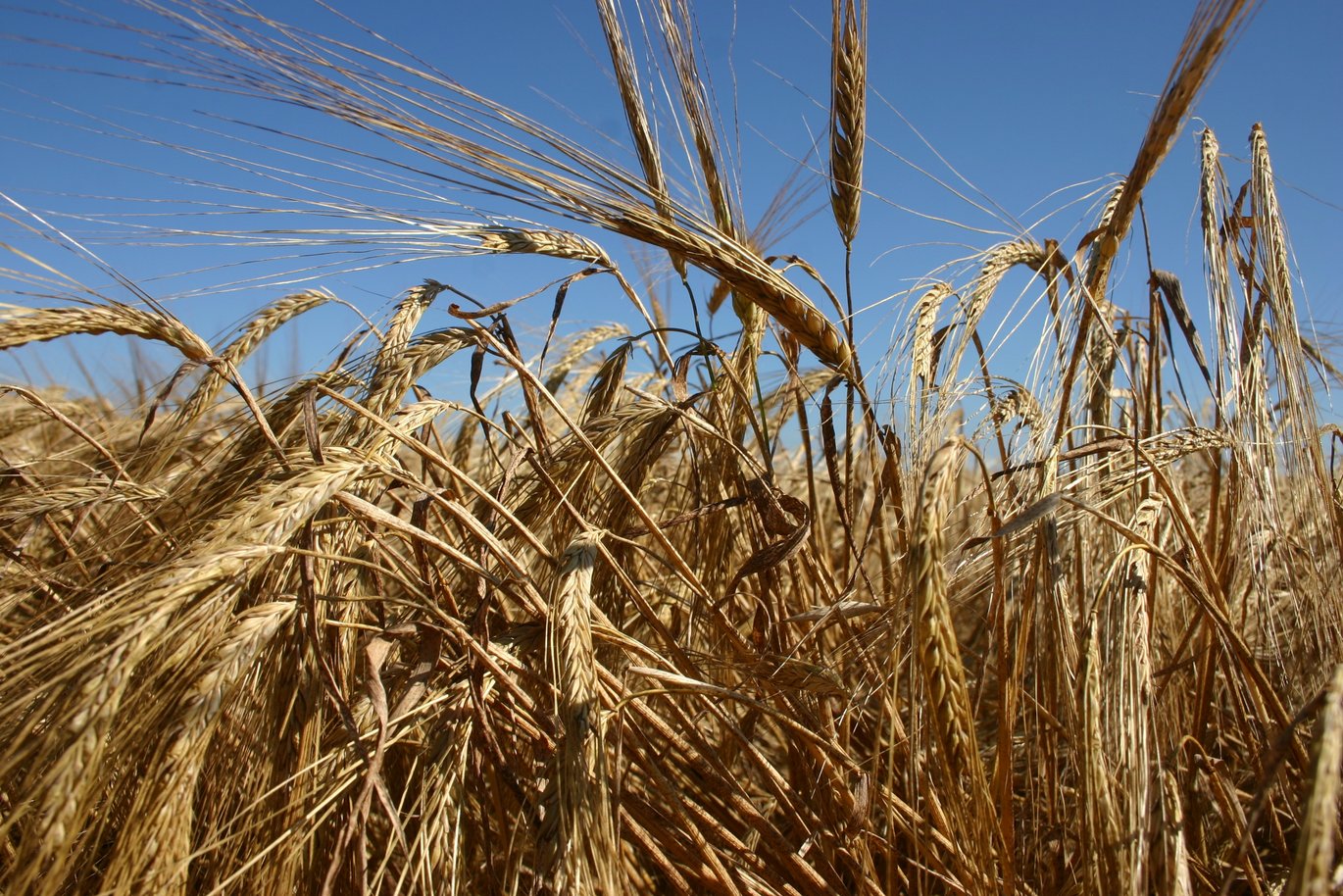Improving feed digestibility saves resources
The right combination of cereals and enzymes can improve feed digestibility and benefit the environment, animal health and the economy.

In pigs and poultry cereals such as wheat and barley form a very large part of the diet. Better digestibility of the cereals will ease the pressure on the environment, improve the health of the livestock and make the production cheaper and more efficient. With increasing pressure on world food resources, it is even more important to produce food as cheaply, efficiently and environmentally friendly as possible.
Scientists from Aarhus University are looking into whether the digestibility of wheat and barley can be improved by combining certain cereal varieties with specific enzymes. This is taking place in a new project, which is a collaboration between Aarhus University (project leader), Novozymes, Sejet Plant Breeding and DLG. The total project budget is 12 million DKK, to which the Green Development and Demonstration Programme (GUDP) of the Ministry of Food, Agriculture and Fisheries has allocated 9 million DKK.
Food goes to waste
When you eat a portion of food, most of it goes to meet the different needs of your body. The residue is eliminated at the other end as urine and faeces. Exactly the same happens to farm animals - except in agriculture there is a strong focus on optimizing the use of the feed to maximise the production of meat, milk and eggs and minimise the production of manure and urine.
The digestibility of the feed varies greatly and can never be 100 per cent. When feed manufacturers make up the ration for the cows they therefore add nutrients that could potentially be in deficit. This corresponds to our taking a vitamin pill to be on the safe side. Excess and unabsorbed nutrients will, however, go straight through the digestive system and out the other end. This is a waste of resources and affects both the individual animal and the environment.
Better digestibility in the lab and in the rumen
The digestibility of wheat and barley can be improved by adding enzymes such as xylanase and protease. But there is a caveat: Some cereal varieties contain substances that inhibit the effects of these enzymes.
The scientists will therefore identify and breed varieties of barley and wheat that do not inhibit enzyme activity, detect the most effective types of xylanase and protease, develop new special enzymes and optimise the amalgam of these.
- There are significant differences in the effect of the enzymes, depending on the type of cereal used. Grain digestibility can be improved by mixing xylanase and protease with the right varieties of wheat and barley, says the leader of the project, associate professor Henrik Brinch-Pedersen from the Department of Molecular Biology and Genetics at Aarhus University.
The scientists from Aarhus University will describe the genetic profile of the relevant cereal varieties and locate markers for the substances that inhibit xylanase and protease so that low-digestibility barley and wheat can be more easily identified and avoided. At the same time, scientists will identify effective and versatile types of protease and xylanase that can be widely used in wheat or barley-based feed. The cereal varieties that are most promising in terms of digestibility will be grown and combined with the most promising types of xylanase and protease.
The final litmus test will be whether the mixtures are effective in animals. The scientists will feed the pigs and chickens with the selected mixtures of grains and enzymes and examine the digestibility of each. The mixtures producing the best results will be used by DLG when mixing feed for pigs and poultry.
Further information: Associate professor Henrik Brinch-Pedersen, Department of Molecular Biology and Genetics, e-mail: henrik.brinchpedersen@agrsci.dk, telephone: +45 8715 8268
